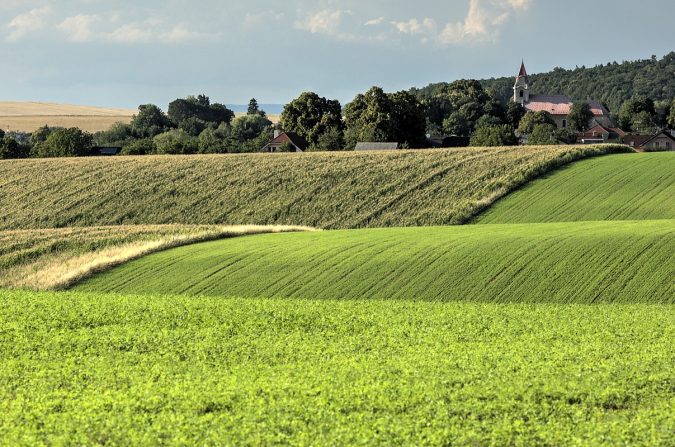Yesterday, the European Commission approved the CAP Strategic Plans of the Czech Republic and Slovakia. The new Common Agricultural Policy (CAP), which will start on 1 January 2023, should shape the transition to a sustainable, resilient and modern European agricultural sector.
The new CAP includes a more efficient and effective way of working. EU countries will implement national strategic plans for the CAP, combining funding for income support, rural development and sectoral programmes. In preparing the CAP strategic plan, each member state has chosen from a wide range of EU-level support measures tailored to its specific needs and local conditions. The Commission checked that each plan addresses the 10 main objectives of the CAP, which address common environmental, social and economic challenges. The plans must be in line with EU legislation and must also contribute to the EU’s climate and environmental goals, as set out in the Commission’s farm-to-fork and biodiversity strategies.
The approved plans of the Czech Republic and Slovakia represent a total EU budget of €8.9 billion, of which €5.6 billion for the Czech Republic and €3.3 billion for Slovakia. Of the total EU budget of these two countries, €3 billion goes to environmental and climate objectives and environmental schemes, and more than €200 million to young farmers.
A key objective of the Czech plan is a fairer distribution and more effective targeting of income support. Farms will receive redistribution aid for their first 150 hectares to improve the profitability of small and medium-sized farms. Some 54% of Czech farms will also receive additional support for sectors facing specific difficulties, such as the milk and beef sectors. In terms of environmental priorities, the focus is on protecting natural resources and biodiversity. More than 40 000 hectares will have non-productive areas cultivated and integrated production methods that reduce the use of pesticides. According to the Czech plan, the agricultural area with CAP support for organic farming should increase from the current 16% to 21% by 2027. Finally, the CAP will invest in rural areas to curb depopulation and strengthen rural employment. More than 1,700 jobs are expected to be created thanks to CAP funding.
The Slovak plan aims to increase the competitiveness and resilience of the agricultural sector while protecting natural resources. It introduces a cap on direct payments based on farm size and a redistribution aid for small and medium-sized farms. An additional annual support of €370 million will help Slovak farmers in areas with natural constraints, as 61% of Slovak farmland falls into this category. With the help of CAP support, Slovakia aims to farm 20% of its farmland organically by 2030. In addition, almost 64% of livestock farms will benefit from EU funds to reduce the use of antibiotics and support higher animal welfare standards. Rural development is also an important part of the Slovak plan, as it will support the creation of 1,500 jobs and 430 rural businesses. Finally, more than 10 000 people will have access to advice and training, especially on digitalisation and sustainable agriculture.
The Czech Republic and Slovakia submitted their initial proposals for the CAP strategic plan on 28 January 2022 and 16 February 2022, respectively, after consultations with stakeholders. They then submitted their revised proposals on 3 November for the Czech Republic and 4 November for Slovakia, responding to the Commission’s comments.
To be approved, each plan must be comprehensive, compatible with legislation and ambitious enough to meet the objectives of the CAP and the EU’s environmental and climate commitments.
Earlier, the strategic CAP plans of Denmark, Germany, Ireland, Greece, Spain, France, Croatia, Latvia, Estonia, Lithuania, Luxembourg, Hungary, Austria, Poland, Portugal, Slovenia, Finland and Sweden, among others, were approved. Countries such as Belgium and the Netherlands are lagging behind.
Picture credits: Doronenko

